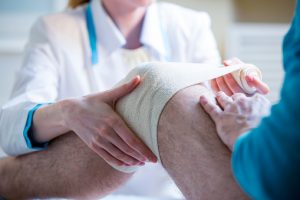 A new surgery for knee cartilage restoration shows promise among patients over the age of 40. Damage of the cartilage – the cushion found between joints – not only causes pain, but can prevent individuals from partaking in certain activities. Two studies found that a new procedure to repair knee cartilage may be a viable option for those over 40.
A new surgery for knee cartilage restoration shows promise among patients over the age of 40. Damage of the cartilage – the cushion found between joints – not only causes pain, but can prevent individuals from partaking in certain activities. Two studies found that a new procedure to repair knee cartilage may be a viable option for those over 40.
Senior study author Riley J. Williams said, “Various cartilage restoration procedures have demonstrated success rates ranging from 50 to 90 percent, but the majority of reported results were in patients ages 30 and younger. Our studies are the first to look at outcomes of three specific procedures used to repair damaged cartilage in patients over 40.”
Advertisement
The surgeons found that using different types of cartilage “plugs” was successful in relieving pain and improving knee function in patients with articular cartilage damage.
When cartilage becomes damaged, it cannot heal on its own, unfortunately. Surgical procedures are required to repair the damage, minimize pain, and improve functionality.
The first study looked at 35 patients with damaged cartilage below the kneecap. The second study consisted of 61 patients whose cartilage damage was below the femur bone in the knee joint.
The restoration surgery consisted of inserting a “plug” to fill the hole or damaged area. Over half of the patients received synthetic plugs, while the others received donor cartilages or a small plug of cartilage transferred from another healthier part of the knee.
At the end of the follow-up period, activity levels rose and pain reduced in majority of the patients. Dr. Williams reported no significant differences between the different treatment groups. He concluded, “For the first time, this middle-aged group of athletic individuals may have some good options to repair cartilage lesions. In addition to improving their quality of life, this may help them delay the need for a knee replacement down the road.”
Sources:
http://www.eurekalert.org/pub_releases/2016-03/hfss-ptr030416.php
